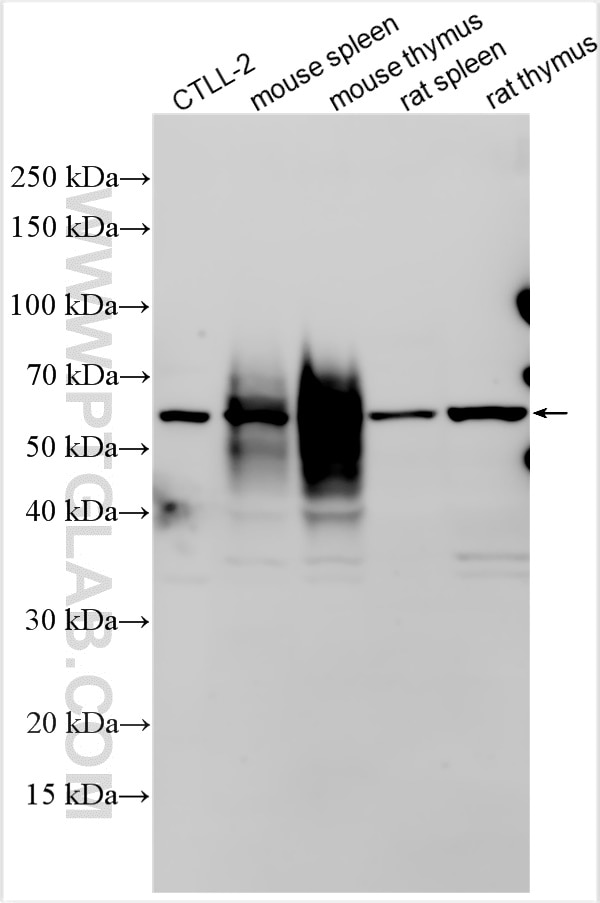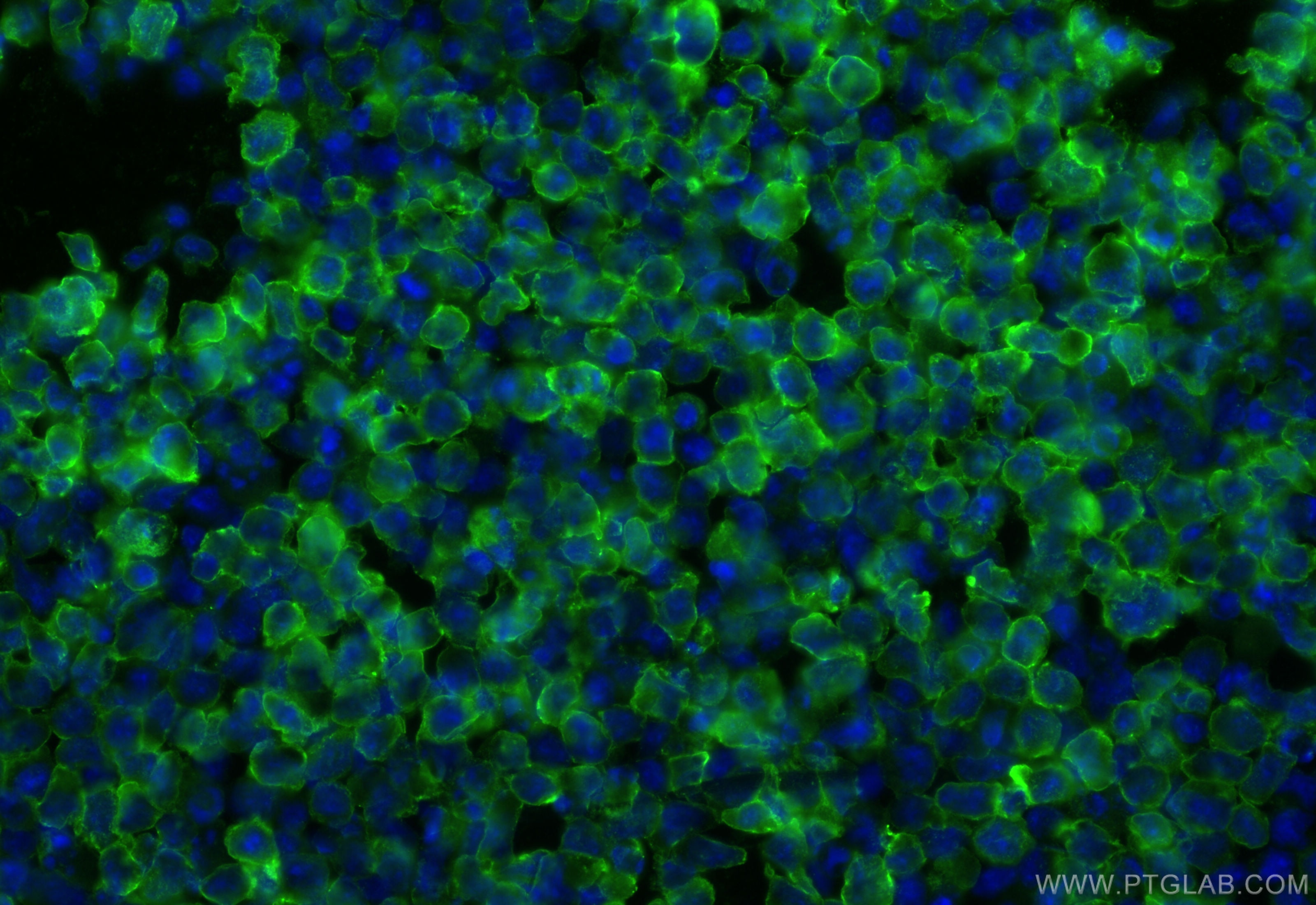Tested Applications
| Positive WB detected in | CTLL-2 cells, mouse spleen tissue, mouse thymus tissue, rat spleen tissue, rat thymus tissue |
| Positive IF/ICC detected in | EL-4 cells |
Recommended dilution
| Application | Dilution |
|---|---|
| Western Blot (WB) | WB : 1:2000-1:12000 |
| Immunofluorescence (IF)/ICC | IF/ICC : 1:400-1:1600 |
| It is recommended that this reagent should be titrated in each testing system to obtain optimal results. | |
| Sample-dependent, Check data in validation data gallery. | |
Product Information
31947-1-AP targets CD2 in WB, IF/ICC, ELISA applications and shows reactivity with mouse, rat samples.
| Tested Reactivity | mouse, rat |
| Host / Isotype | Rabbit / IgG |
| Class | Polyclonal |
| Type | Antibody |
| Immunogen |
CatNo: Eg1403 Product name: Recombinant Mouse CD2 protein (rFc Tag) (HPLC verified) Source: mammalian cells-derived, pHZ-KIsec-C-rFc Tag: C-rFc Domain: 23-203 aa of NM_013486.2 Sequence: RDNETIWGVLGHGITLNIPNFQMTDDIDEVRWVRRGTLVAEFKRKKPPFLISETYEVLANGSLKIKKPMMRNDSGTYNVMVYGTNGMTRLEKDLDVRILERVSKPMIHWECPNTTLTCAVLQGTDFELKLYQGETLLNSLPQKNMSYQWTNLNAPFKCEAINPVSKESKMEVVNCPEKGLS Predict reactive species |
| Full Name | CD2 antigen |
| Calculated Molecular Weight | 38 kDa |
| Observed Molecular Weight | 60 kDa |
| GenBank Accession Number | NM_013486.2 |
| Gene Symbol | CD2 |
| Gene ID (NCBI) | 12481 |
| RRID | AB_3670154 |
| Conjugate | Unconjugated |
| Form | Liquid |
| Purification Method | Antigen affinity Purification |
| UNIPROT ID | P08920 |
| Storage Buffer | PBS with 0.02% sodium azide and 50% glycerol, pH 7.3. |
| Storage Conditions | Store at -20°C. Stable for one year after shipment. Aliquoting is unnecessary for -20oC storage. 20ul sizes contain 0.1% BSA. |
Background Information
CD2 is a cell surface glycoprotein present on a majority of thymocytes, all mature T cells and subset of NK cells but not on B lymphocytes. It is a pan T-cell marker. CD2 interacts with lymphocyte function-associated antigen (LFA-3/CD58) and CD48/BCM1 to mediate adhesion between T-cells and other cell types. CD2 is implicated in the triggering of T-cells, the cytoplasmic domain is implicated in the signaling function.
Protocols
| Product Specific Protocols | |
|---|---|
| IF protocol for CD2 antibody 31947-1-AP | Download protocol |
| WB protocol for CD2 antibody 31947-1-AP | Download protocol |
| Standard Protocols | |
|---|---|
| Click here to view our Standard Protocols |






